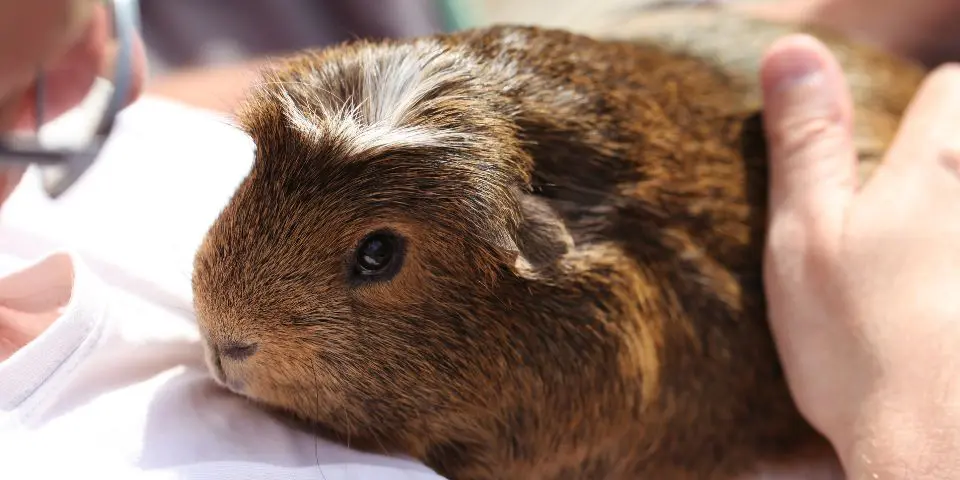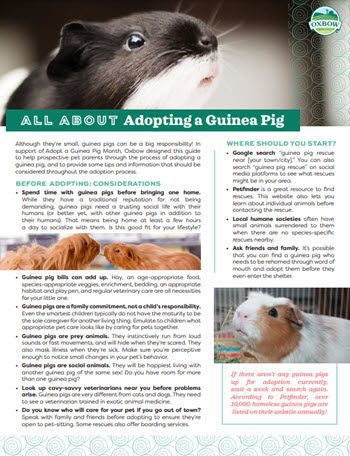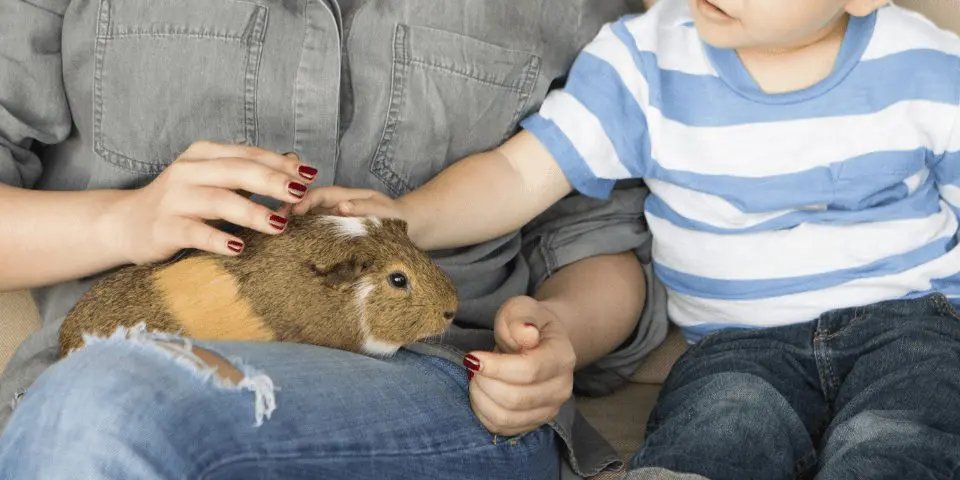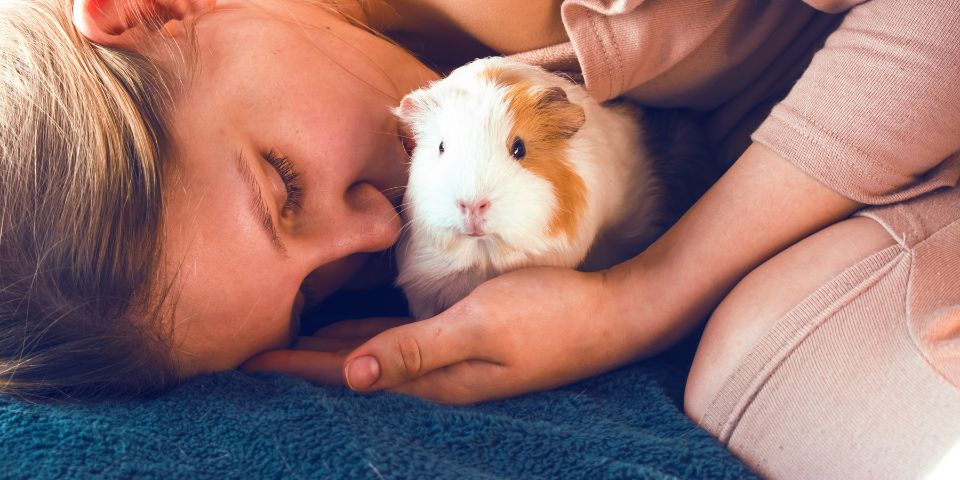Author: Kellie Hayden
Updated: February 27, 2024
Although they’re small, guinea pigs can be a big responsibility! In support of Adopt a Guinea Pig Month, Oxbow designed this guide to help prospective pet parents through the process of adopting a guinea pig, and to provide some tips and information that should be considered throughout the adoption process.
What To Consider Before Adopting A Guinea Pig
- Spend time with guinea pigs before bringing one home. While they may have a traditional reputation for not being demanding, guinea pigs need a trusting social life with their humans (or better yet, with other guinea pigs in addition to their humans). That means being home at least a few hours a day to socialize with them. Is this good fit for your lifestyle?
- Guinea pig bills can add up. Hay, an age-appropriate food, species-appropriate veggies, enriching accessories, bedding, an appropriate habitat and play pen, and regular veterinary care are all necessities for your little one.
- Guinea pigs are a family commitment, not a child’s responsibility. Even the most responsible and intelligent children typically do not have the maturity to be the sole caregiver for another living thing. Emulate to children what appropriate pet care looks like by caring for pets together.
- Guinea pigs are prey animals. They instinctively run from loud sounds or fast movements, and will hide when they’re scared. They also mask illness when they’re not feeling well. Make sure you’re perceptive enough to notice small changes in your pet’s behavior.
- Guinea pigs are social animals. They will be happiest living with another guinea pig of the same sex! Do you have room for more than one guinea pig?
- Look up cavy-savvy veterinarians near you before problems arise. Guinea pigs are very different from cats and dogs. They need to see a veterinarian trained in exotic animal medicine.
- Do you know who will care for your pet if you go out of town? Speak with family and friends before adopting to ensure they’re open to pet-sitting. Some rescues also offer boarding services.
- With quality care, and depending on an animal’s unique genes, a guinea pig can live to be at least 5 years old. Make sure you’re ready for this commitment!
Where To Begin Your Search For Your New Pet Guinea Pig
- Google search “guinea pig rescue near [your town/city].” You can also search “guinea pig rescue” on social media platforms to see what rescues might be in your area.
- Petfinder is a great resource to find rescues. This website also lets you learn about individual animals before contacting the rescue.
- Local humane societies often have small animals surrendered to them when there are no species-specific rescues nearby.
- Ask friends and family. It’s possible that you can find a guinea pig who needs to be rehomed through word of mouth and adopt them before they even enter the shelter.
If there aren’t any guinea pigs up for adoption currently, wait a week and search again. According to Petfinder, over 10,000 homeless guinea pigs are listed on their website annually!

Questions To Ask Your Local Rescue:
- How do I make an appointment to see guinea pigs up for adoption?
- Can I see the facility where guinea pigs are kept? (Keep in mind, some rescues only keep animals in foster homes and don’t have a facility; regardless of where the animal is kept, the environment should be clean, safe, and temperature controlled.)
- Does this animal have any special needs or particular health issues? What was their life like before coming to the rescue?
- What kind of health checks are done before pets are considered ready for adoption?
- What are this guinea pig’s likes, dislikes, and general personality? Are they shy or outgoing? Do they like being handled?
- What veterinarian does this guinea pig see?
- What cage, food, hay, and other products do you recommend?
- Can you take a handful of pellets and hay from the rescue so you can mix old and new food together to avoid GI upset? (It’s courteous to offer the rescue a small monetary donation in addition to adoption fees to make up for the amount of food you are taking home)
Important Precautions To Take During Your Search:
- Unfortunately, grifters exist! Grifters may act like a rescue to “flip” animals they find for free, buy from an auction, or use unscrupulous means to obtain, selling an animal quickly without conducting a health assessment or providing any necessary medical care. If a purported rescue won’t answer questions, or if you’re not allowed to see the guinea pig’s living conditions, you may want to find alternatives.
- Consider a short quarantine. While reputable rescues do their best to not adopt out sick animals, if you have a guinea pig herd at home consider enacting a short isolation period with your new guinea pig. If they’re sick with something contagious they can then be treated before joining their new friends!
How To Welcome Your New Guinea Pig Home!
Congratulations! Your adoption application was approved! These steps can help your new friend adjust to living in your home:
- Set up the enclosure before bringing them home. This will allow your guinea pig to settle in right away with minimal fuss and stress.
- Try to avoid handling your new friend for a few days. That is, unless they appear to want attention from you! Being in an unfamiliar place with new sounds and smells can be frightening. Your guinea pig will need time to adjust to their new surroundings and learn that they are safe in this new space.
- Spend time interacting with your pet daily. Time spent with your guinea pig can include hand feeding them hay or fortified food, interacting with them through enrichment items, or simply sitting by their enclosure while reading or completing a quiet task. All of these forms of interaction will help your new friend become accustomed to your mannerisms and their new life with you.
The environment you provide to your pet is all they know about the world. Make sure their world is happy, healthy, and enriching!




